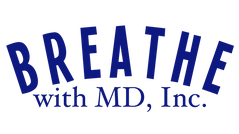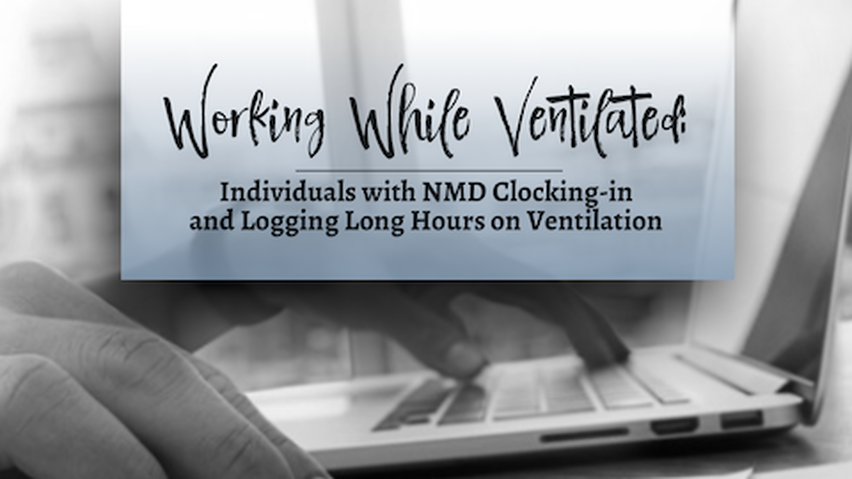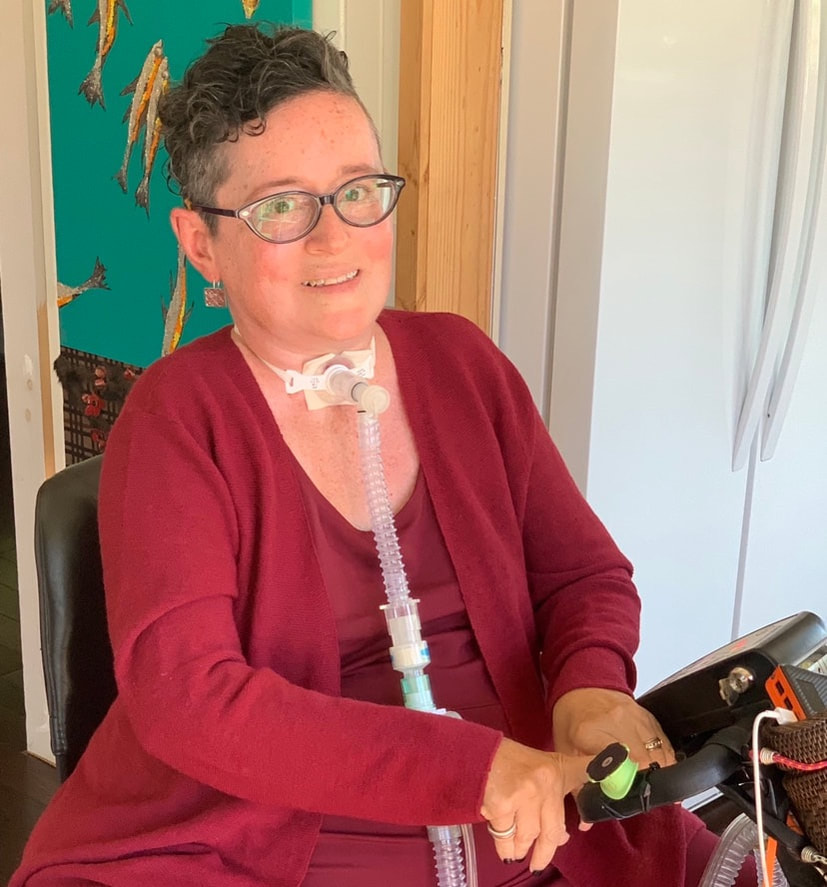|
By Andrea L. Klein "I taught myself to suction, change the vent battery, and silence the alarms, so I can be alone for long periods of time." - Carole Zoom Most people would never imagine an individual who uses 24/7 ventilation via tracheostomy working as a real estate agent. Carole Zoom’s love for helping families and businesses find the perfect location to grow and thrive makes this an ideal career choice for her.
“Good real estate work is about strong communication and negotiation skills, which most individuals with disabilities have extensive personal experience with,” she said. An agent with Keller Williams in Maui, HI, Carole sells residential and commercial properties. During the Coronavirus pandemic, real estate transactions are occurring primarily through virtual means. This has made the real estate field even more attractive for agents who live with disabilities. Since realtors are independent contractors, Carole works from home, is able to work any combination of hours, and chooses her own projects and clients. A team of caregivers drive her and travel along when needed. “When clients want to view a property that is not wheelchair accessible, buyers can view without me, and I can review with them after. Or I can provide a partner agent or assistant to lead them on the tour,” she said. Carole explained, “The commission structure of real estate can be advantageous for those on benefits as they transition to full time employment.” This makes her job particularly well suited for life with Collagen 6 Myopathy, a form of Muscular Dystrophy (MD) with a spectrum of clinical presentation ranging from Bethlem Myopathy on the mild end to Ullrich Congenital MD on the severe end. Like many adults with this condition, she spent decades unaware of her exact diagnosis. She was 52 when she learned she had the COL6A2 genetic mutation, one of three mutations that cause this progressive neuromuscular disorder that involves respiratory muscle weakness. She began using invasive ventilation through a tracheostomy in 2001 and transports her ventilator on the front of a mobility scooter during the day. She is able to breathe on her own off of the ventilator for an hour or two at a time, when she needs or chooses to be. Carole shared that her disability is “largely stable with very slight decreases in strength every year.” She gets around more easily than most she knows with neuromuscular conditions and is home alone for about 15 hours a day. “I taught myself to suction, change the vent battery, and silence the alarms, so I can be alone for long periods of time,” Carole explained. She commented that she’s lucky the settings on her home use ventilator allow her to have a strong and steady speaking voice. She recalls, “I resisted getting it [the ventilator], but I have to say I’m stronger and more energetic with the ventilator and wish I had gotten it earlier.” Carole recently moved to a new city in Oregon with what she describes as a great, accessible transportation system. She was looking forward to using public transit there to meet clients on her own. Then the pandemic hit, and her doctor advised against having contact with the public, including her clients. Like many with underlying health conditions that might result in a severe outcome from COVID-19, Carole has been isolated for more than 250 days. Her work currently involves maintaining relationships with clients and exploring real estate as a long-term investment strategy. Carole explained, “Work as a realtor is flexible, and my colleagues at our real estate firm have been very helpful when I need assistance due to life’s mishaps or my disability. I recommend real estate as an option for any person who is motivated and ambitious.” If you live with a muscle disease and “work while ventilated,” Breathe with MD, Inc. would love to share your story. Write us at [email protected] to learn more. |
ArchivesCategories |
Breathe with MD, Inc. is a U.S. registered 501(c)(3) nonprofit organization. Donations are tax deductible to the extent allowable by law.
Note: This website should not be used as a substitute for medical care. For medical care or advice, please seek the care of a clinician who specializes in the breathing issues of those with Neuromuscular Disease (NMD).
Web Hosting by Hostgator
Note: This website should not be used as a substitute for medical care. For medical care or advice, please seek the care of a clinician who specializes in the breathing issues of those with Neuromuscular Disease (NMD).
Web Hosting by Hostgator



 RSS Feed
RSS Feed